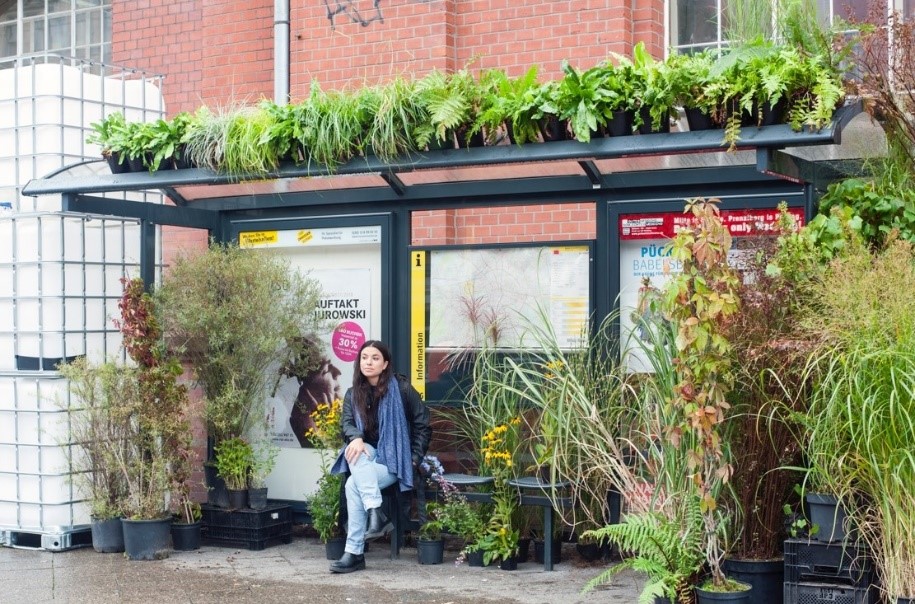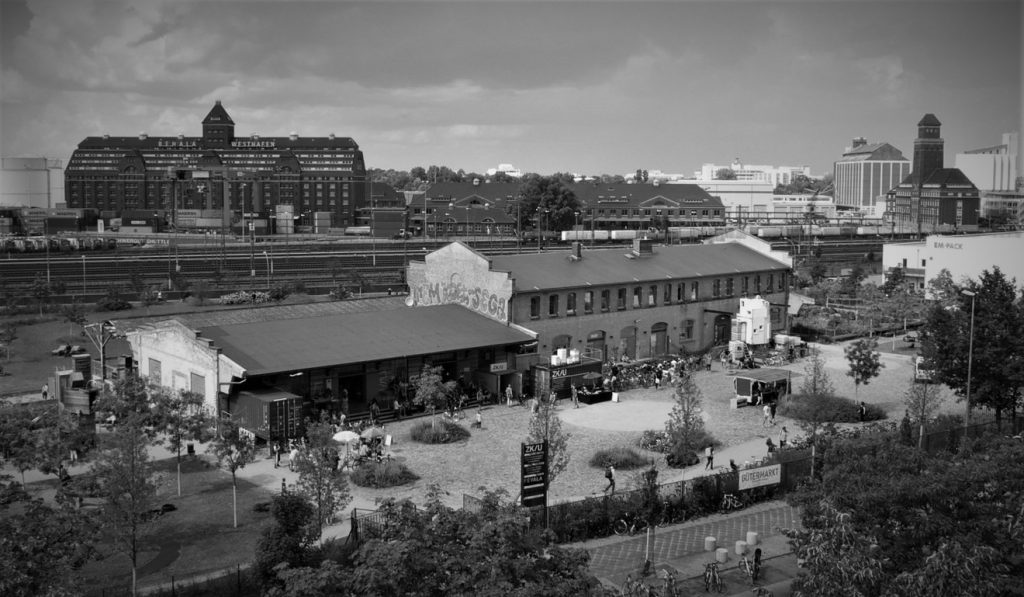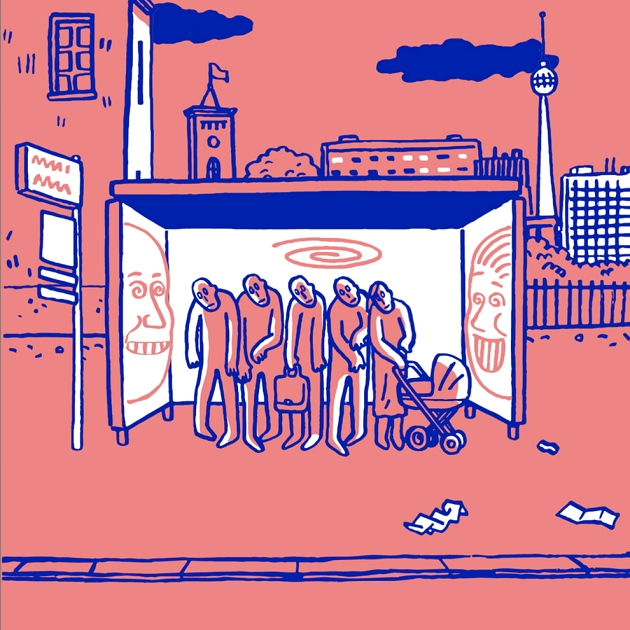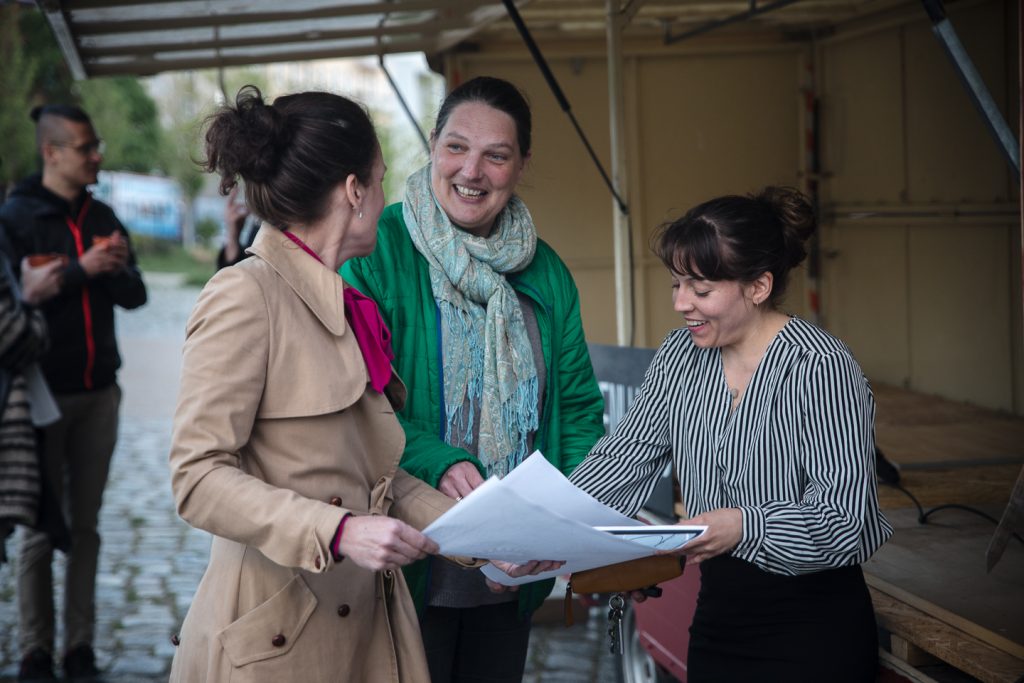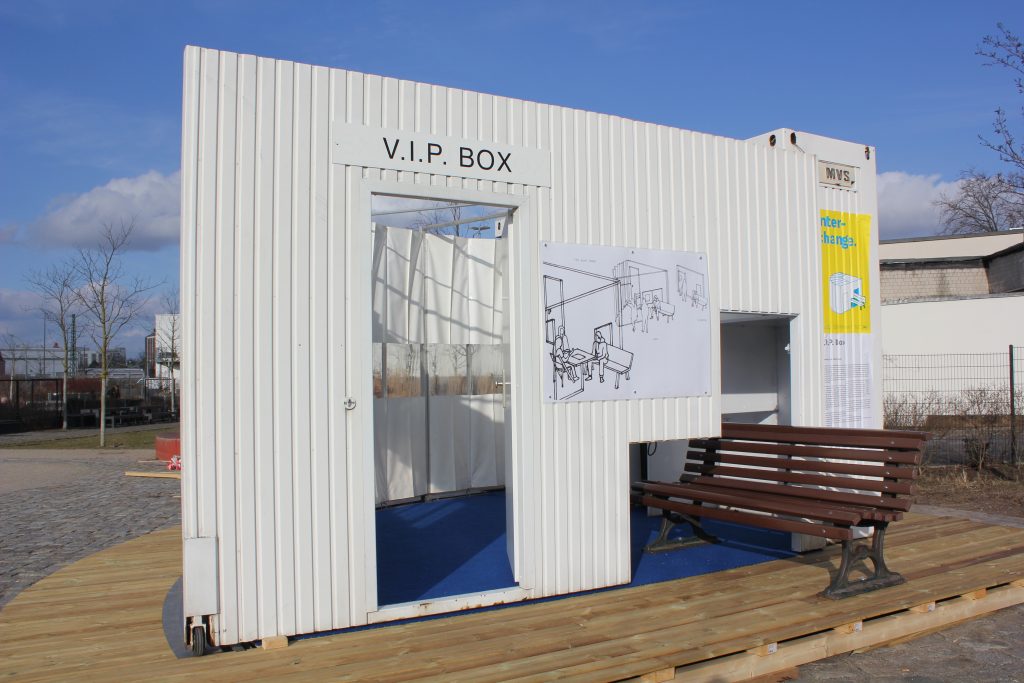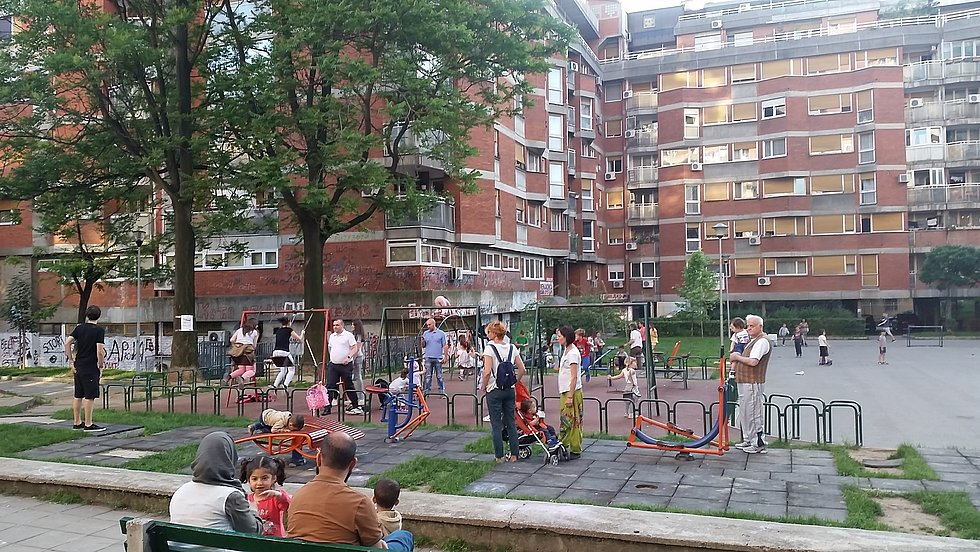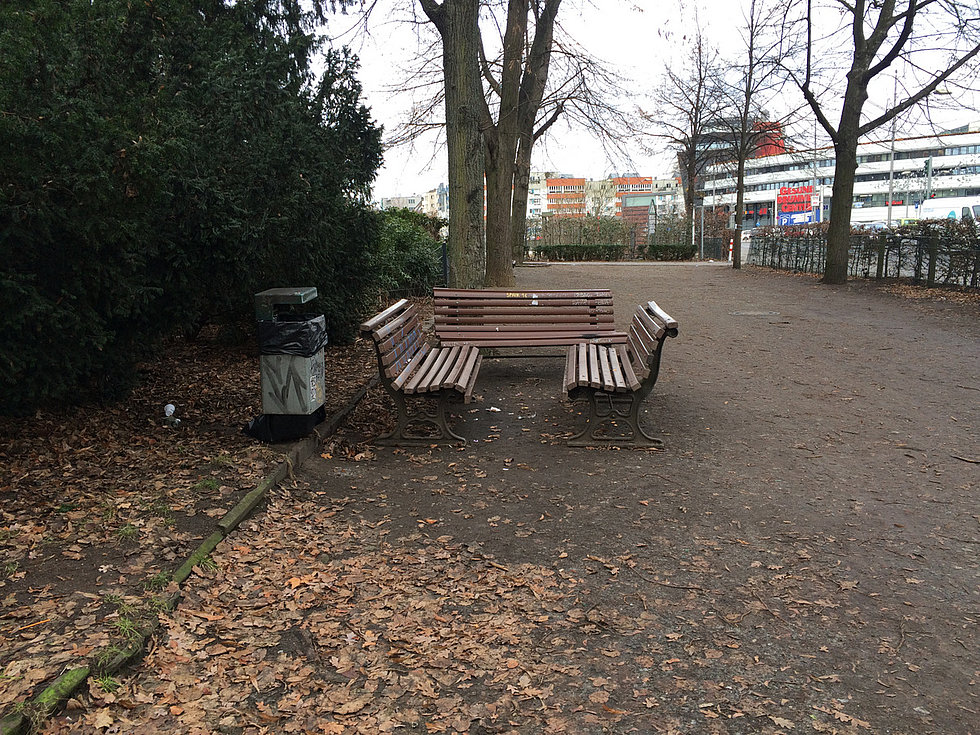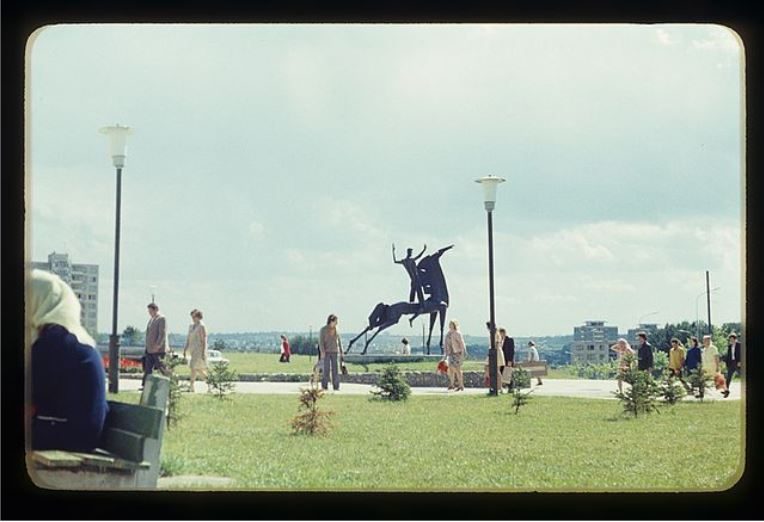Take Moabit, an old working-class district where Shared Cities’ partner KUNSTrePUBLIK is based, facing challenges arising from the polarity of backgrounds of its inhabitants – from established ‘middle-class’ citizens, precarious first and second-generation migrants to the newly arriving refugees. As part of Shared Cities, KUNSTrePUBLIK initiated a debate about the economic exploitation of public space and urban furniture culminating in the Hacking Urban Furniture conference in April 2017.
Project Partner in Berlin
KUNSTrePUBLIK, a Berlin-based NGO founded in 2006, is the organisation behind ZK/U (Centre for Arts and Urbanistics) – a hub for urban research and artistic practice in a former cargo-station in Berlin Moabit. In the framework of Shared Cities, ZK/U showcased new prototypes of urban products at the experimental Hacking Urban Furniture exhibition in March 2018 or ran Güterverkehr, a public platform testing new cooperative forms of local production, and Food and Footage / Speisekino workshops. ZK/U was also a partner to various research studies and hosted the Shared Cities residency programme in Berlin in cooperation with reSITE.
Watch Berlin – Hacking Urban Furniture
